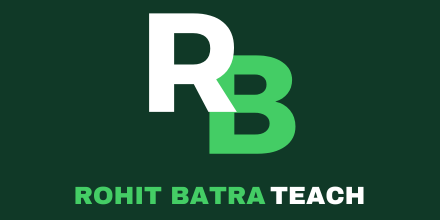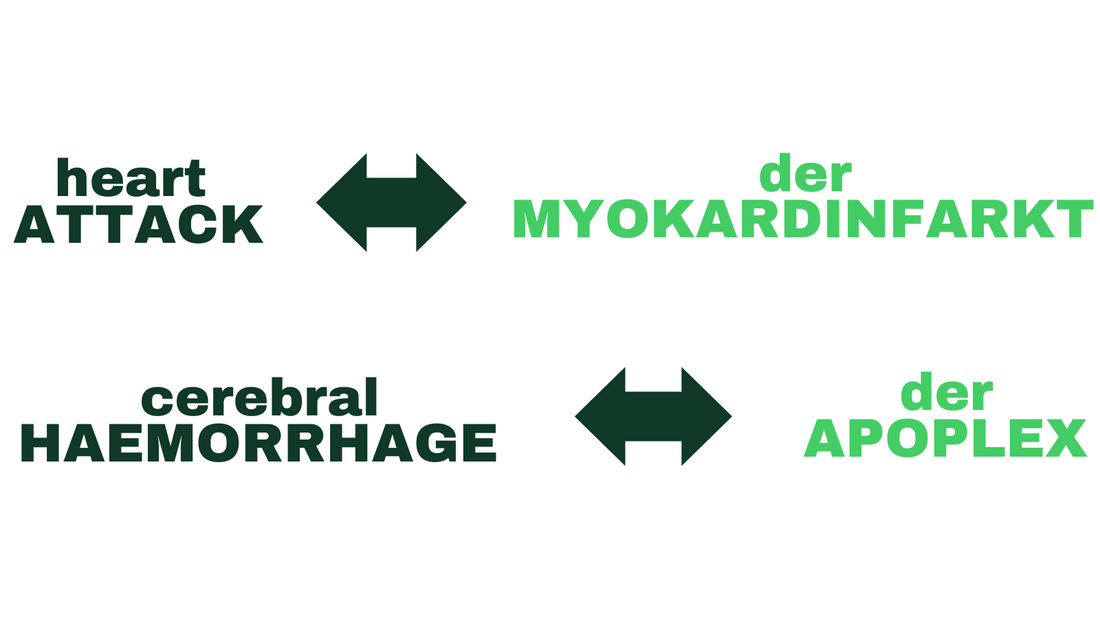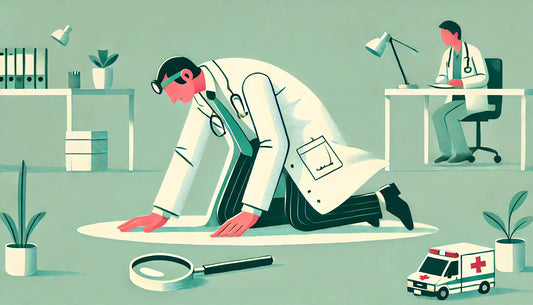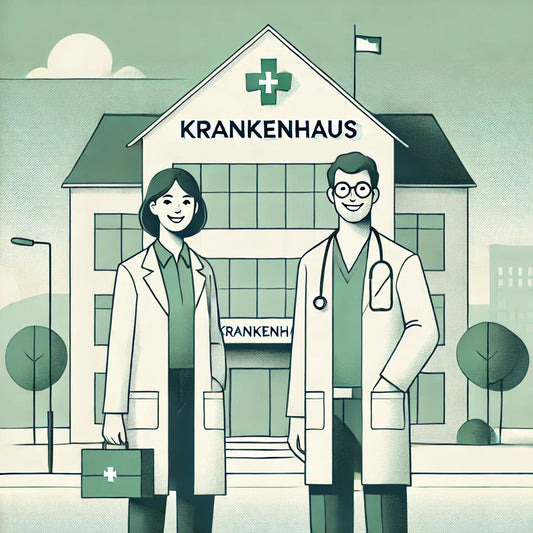FSP or Fachsprachenprüfung is a specialised medical German language exam designed to assess your proficiency in medical German.
Watch a video discussing the FSP and all the parts of the exam with examples by clicking here.
For most students, it is a challenge to understand what this test truly entails. "Is this going to be completely in German"? Some are worried if they are going to be good enough. "Will they test my knowledge in medicine/surgery or gynaecology"? or even "How can i prepare for this dreaded exam and what happens if i FAIL"?
Don't worry, as by the end of reading this, you will have answers to all of your questions. Promise.
Why Mastering Medical German is Crucial for Foreign Doctors
Imagine you are in a busy German hospital, surrounded by medical professionals discussing patient cases in a language that feels alien. The inability to understand or contribute effectively not only hampers your performance but also diminishes the quality of patient care you can provide. This is where the mastery of Medical German becomes indispensable. Medical German is your gateway to integration into the German healthcare system. It enables you to:
- Communicate accurately with patients, ensuring they understand their diagnoses and treatment plans.
- Collaborate efficiently with medical staff, from nurses to senior consultants, to provide the best care.
- Document medical histories, diagnoses, and treatment plans correctly, which is crucial for legal and medical standards in Germany.
In essence, without proficiency in medical German, you cannot fully function as a healthcare provider in Germany, which is why passing the Fachsprachprüfung is mandatory.
What is the FSP Exam?
Unlike other tests, this one focuses solely on your command over the language as it applies to medical settings, and not on your medical knowledge per se. You will be tested in three key areas to mimic real-world hospital situations. This 60-minute exam is divided into three parts, each lasting 20 minutes.
Part 1: Doctor-Patient Conversation (Arzt-Patienten-Gespräch)
Objective
You will engage in a medical history discussion with a patient, who will be played by an actor. The objective is to simulate an everyday doctor-patient conversation.
Procedure
- You will start by asking the patient various questions to take their medical history, just like you learned in your medical training.
- You will then explain your preliminary diagnosis and suggest further diagnostics and treatment.
- Be prepared to answer any follow-up questions the patient might have.
Evaluation
- Coherence: Make sure your statements are logically sound. For example, suggesting to cast a foot for a "Humerus fracture" will raise questions.
- Language Flexibility: You are expected to use flexible and descriptive language.
- Clarity: The patient should clearly understand you; avoid medical jargon as much as possible.
Part 2: Documentation
Objective
You are required to document the medical history discussion that took place in Part 1.
Procedure
- You will be provided with a standard Anamnesebogen (medical history form) by ÄkNo.
- Transfer the details of the patient's medical history onto this form.
Evaluation
- Completeness: Ensure all fields are accurately filled out.
- Clarity: The information should be easy to understand for other medical professionals.
Part 3: Doctor-Doctor Conversation (Arzt-Arzt-Gespräch)
Objective
This part simulates a ward round situation where you discuss the patient's case with two other doctors, possibly a chief doctor and a senior doctor.
Procedure
- You will present the patient's case in a structured manner, summarizing the medical history, your preliminary diagnosis, and treatment suggestions.
- The two doctors will then ask you follow-up questions and may present additional information about the patient for you to evaluate.
Evaluation
- Professional Language: Use medical terms, as you are speaking to professionals.
- Structure: Present the information in a logical sequence.
- Personal Insight: Include your own assessments and ideas for further treatment.
Part 4: Medical German translations
Objective
You are required to translate 10 formal medical German terms into common German.
Challenges in Learning Medical German
Learning Medical German is undoubtedly challenging, especially when balancing it with other responsibilities like clinical rotations or family life. Here are some common challenges and how to overcome them:
- Language Barriers: Medical German can be challenging even if you are proficient in general German. Don’t hesitate to seek help from specialised language tutors or online courses focusing on Medical German.
- Time Management: Balancing your time between learning the Language and other responsibilities can be difficult. Create a study schedule that fits your routine and stick to it as much as possible.
- Cultural Differences: Understanding the cultural context of Medical German can be challenging. Engage with German colleagues or join cultural exchange programs to understand these nuances better.
How to Prepare for the FSP Exam
Learning Medical German is a gradual process that demands dedication and consistent practice. Here are some strategies to help you master the Language:
- Immerse Yourself in the Language: Surround yourself with German daily. Watch German medical documentaries, read medical journals, and listen to German podcasts. Consistent exposure like this will significantly increase your familiarity with pronunciation and commonly used medical terms.
- Use Structured Vocabulary Lists: Categorise medical terms by systems, such as cardiovascular, respiratory, or neurological. This helps organise your study material and makes it easier to recall related terms.
- Practice Pronunciation: Pronunciation is crucial in Medical German. Mispronouncing a term can lead to misunderstandings in a clinical setting. Record yourself pronouncing complex terms and compare them with native speakers.
- Engage in Active Learning: Practice by explaining medical cases to peers or joining language workshops tailored to Medical German. Real-world application of the Language is the best way to learn.
Start with the preparations for the FSP exam with the FSP Vocab Trainer here.
Remember, practice is the name of the game. Get enough practice in with the medical German vocabulary and you shall easily pass the dreaded practical exam.
If you do not pass in the first attempt, do not lose heart. You can apply again! Remember to concentrate on your German language and not worry about the medicinal knowledge.
Exclusive For High-Achievers: Accelerator Program
The team at Rohit Batra Teach is here to provide exceptional support every step of the way. Here’s how we will assist you:
1. Recognition/ Defizitbescheid
- We help you get your foreign medical qualifications recognized by German authorities and save you up to 6 months and 1000s of euros.
2. Visa Application
- Applying for the correct visa (e.g., § 16d Abs. 1 AufenthG for recognition of foreign qualifications) can be challenging. We guide you to ensure your visa application is accepted, allowing you to focus on your residency preparations.
3. German Language
- Mastering medical German language is essential for practising as a foreign doctor in Germany. Prepare with professional teachers with RBT for medical language exams and attend Hospitations to gain practical language experience.
4. Residency Application
- Once your qualifications are recognised and your language requirements are met, we will help you navigate through the application process, from approbation to residency, help you prepare for interviews.
Designed for high-performing individuals, our goal is to streamline your journey to securing a medical residency in Germany, allowing you to focus on what matters most—your career development.
"Here we support the next generation of foreign medical doctors start a medical residency in Germany. Discover our customised programs designed to accelerate your path to a German medical residency program. Start your journey today!"
Stay in touch 🫶




